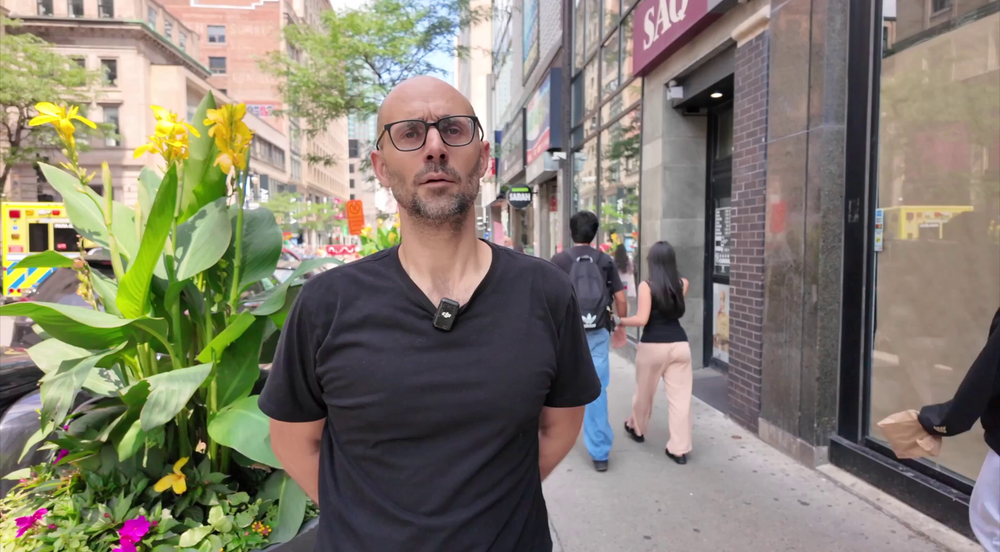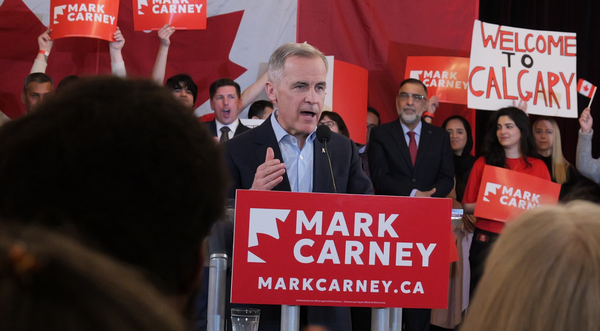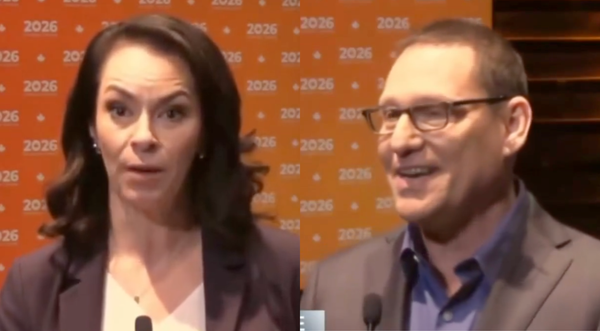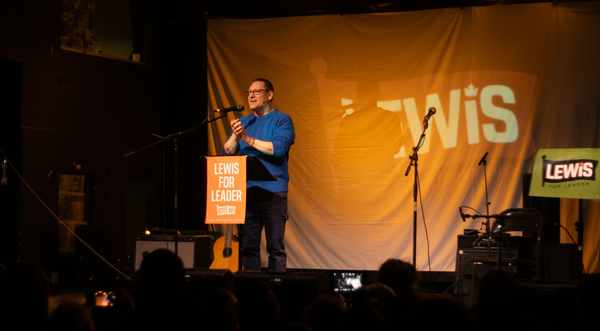Meet the Candidates: Yves Engler
As the federal New Democratic Party heads into a leadership race in March 2026, one of the first candidates to formally enter the race is Yves Engler. As the first and only contender officially nominated and endorsed by the NDP Socialist Caucus, Engler's role as the standard-bearer for the party's hard left flank has been cemented, alongside a no-holds-barred campaign that, if successful, could push the NDP further left than at any point in its history.
A long-time activist, author, and political provocateur, Engler is not a household name in mainstream Canadian politics, but among anti-imperialist grassroots organizers, he has been a lightning rod with a career spent challenging Canadian foreign policy, exposing corporate power, and clashing with political elites.
Yves Engler's Political Journey

Engler's political journey has never followed the mainstream path. Born in Vancouver and raised in Montreal, he became active in politics through student movements and anti-war protests in the early 2000s. Over the years, he has written more than a dozen books critiquing Canadian foreign policy, often arguing that Canada plays a more complicit role in global conflicts and imperialism than is commonly recognized. Engler is a fixture at protests and public meetings, often confronting elected officials directly. His critics say this approach crosses lines of decorum, but his supporters see it as principled and unrelenting activism.
Engler has built a reputation as a disruptive force who is unwilling to temper his message. Now, as he seeks the leadership of Canada's NDP, his platform seeks to push the party far beyond its social-democratic roots and toward a bold, unapologetic socialist agenda.
A Radical Vision for Canada

Engler has built a reputation as a disruptive force who is unwilling to temper his message. Now, as he seeks the leadership of Canada's NDP, his platform seeks to push the party far beyond its social-democratic roots and toward a bold, unapologetic socialist agenda. At the core of Engler's campaign is his 2026 policy platform, Capitalism Can't Be Fixed: Onward to a Socialist Future. True to its title, the 40-page document declares that only a “radical, socialist, and anti-colonial transformation” can meet the needs of Canadians
Engler's platform calls for the nationalization of major industries, from energy and telecommunications to banking and agriculture. Rather than buying out shareholders, he proposes “expropriation without compensation,” arguing that corporate welfare and subsidies have already paid the bill
Key proposals include:
- Energy and Climate: Rapidly winding down the oil sands, ending subsidies for fossil fuels, and transitioning to a fully publicly owned renewable energy sector.
- Housing: Converting properties owned by large corporate landlords and Real Estate Investment Trusts into co-operative housing, while building 100,000 units of social housing annually.
- Healthcare and Services: Expanding public healthcare to cover dental, vision, mental health, and pharmaceuticals, while nationalizing eldercare and childcare.
- Universal Basic Services: Guaranteeing housing, education, food, transportation, and internet access as basic rights delivered publicly.
- Democratic Renewal: Rewriting the NDP constitution to bind elected officials to grassroots policy decisions, abolishing the Senate and monarchy, and moving toward proportional representation and recall elections.
- Workers’ Rights: Shortening the workweek, lowering the retirement age to 55, and ensuring union access and workplace democracy.
- Land Back and Indigenous Sovereignty: Declaring restitution to Indigenous nations “non-negotiable,” including returning significant land, transferring child welfare to Indigenous control, and replacing the Indian Act with Indigenous self-determined governance.
- Justice and Equality: Defunding police in favour of social services, ending overrepresentation of Indigenous children in foster care, and pursuing reparations through a corporate wealth tax.
- LGBTQ Rights and Gender Justice: Restoring and expanding federal funding for gender equality programs, embedding LGBTQ and feminist content in school curricula,, and guaranteeing protections for queer, trans, and other marginalized communities.
- Foreign Policy: Withdrawing Canada from NATO, halting arms sales to Israel, rejecting the IHRA definition of antisemitism, and supporting the Boycott, Divestment, and Sanctions (BDS) movement. He also calls for leaving the G7 and G20, and supporting Global South self-determination.
For Engler, these policies represent not just incremental reforms but a complete restructuring of Canadian society. “Only a radical break with capitalism,” his platform states, “will meet the needs of the many, not the few.”
Controversies and Criticism
Despite his passionate base, Engler's career has been riddled with controversies that could weigh heavily on his leadership bid.
- Rwandan Genocide Comments: Engler has been accused of downplaying the 1994 Rwandan genocide. In his writings, he has questioned mainstream narratives about the conflict, a stance that many academics and human rights groups have sharply criticized as genocide denialism. Engler insists he is challenging geopolitical simplifications, but the issue continues to follow him.
- Stance on Israel and Palestine: Engler is one of Canada's most outspoken critics of Canada's foreign policy as it pertains to Israel and Palestine. His NDP leadership platform calls for banning arms sales to Israel, supporting the Boycott, Divestment, and Sanctions (BDS) movement, and rejecting the widely adopted International Holocaust Remembrance Alliance (IHRA) definition of antisemitism. For many New Democrats, this resonates. For others, including Jewish community leaders and centre-left New Democrats, his rhetoric is viewed as polarizing and, at times, inflammatory.
- Stance on Russia and Ukraine: Engler has repeatedly called for Canada to halt arms shipments to Ukraine, arguing NATO expansion fueled the conflict. While he maintains that Russia's invasion is illegal, Engler's focus on Western responsibility has led some to accuse him of echoing Kremlin talking points, raising questions about whether his peace-first message shifts blame from Russia and risks downplaying Ukraine's right to defend itself.
- Questionable Interviews: Engler appeared on the podcast of Jackson Hinkle, a far-right MAGA influencer known for his staunchly pro-Russia stance, anti-semetic, and openly transphobic rhetoric. Hinkle promotes pro-Russia talking points about Ukraine and frames Western support for Kyiv as illegitimate. During their conversation, Engler did not push back on these narratives, prompting criticism that Engler lent credibility to Hinkle's views.
- Alleged Harassment of female MPs: In a widely circulated video, Engler followed a female Member of Parliament, Anna Gainey, to her car after a parliamentary event, pressing her on foreign policy issues. Engler also filmed an exchange he had with another female Member of Parliament, Melissa Lantsman, where he followed her to the washroom. Critics described these encounters as intimidating and accused him of harassment. Engler has defended his actions as in both cases political confrontation, not personal intimidation, but the episodes raised questions about his methods.
- Remembrance Day Comments Controversy: In 2024, Engler drew backlash for comments framing Remembrance Day as a celebration of “chauvinistic Anglo imperialism.” In a widely circulated post on X, he argued that the commemoration ignores victims of Canadian wars abroad and criticized the outrage over an Arabic peace song at an Ottawa school's ceremony. Engler's supporters praised him for challenging nationalism and highlighting double standards, but critics condemned the remarks as deeply disrespectful to veterans and grieving families, accusing him of trivializing a solemn day of mourning.
These controversies highlight the tension that has defined Engler's career: a refusal to compromise that inspires loyalty among some but alienates others.
A Divisive but Energizing Presence
For NDP members, Engler's candidacy poses a fundamental question: should the party fully return to its activist roots or seek broader electoral appeal?
Supporters argue that Engler brings energy and clarity that have been missing from federal politics. “I have always enjoyed his writing and support his foreign policy positions and the absolute need for a radical transformation of our economies to actually address the destruction of our environment,” one supporter told the Provincial Times. “I have no problem with people who support the murder of children being hounded and held to task,” another supporter said.
But critics warn his uncompromising stance could isolate the party. His foreign policy positions, particularly calls to withdraw from NATO and support armed resistance movements abroad, are likely to alarm centrist voters. His domestic policies, such as abolishing billionaires and expropriating corporations, are similarly far outside the political mainstream.
Even within the NDP, where debate over the party's direction has simmered for years, Engler's platform is a dramatic shift. Party insiders note that while the NDP has always contained a strong socialist tradition, it has also balanced pragmatism and electoral viability. Engler's challenge is whether he can align the grassroots enthusiasm he commands with the expectations of a national electorate.
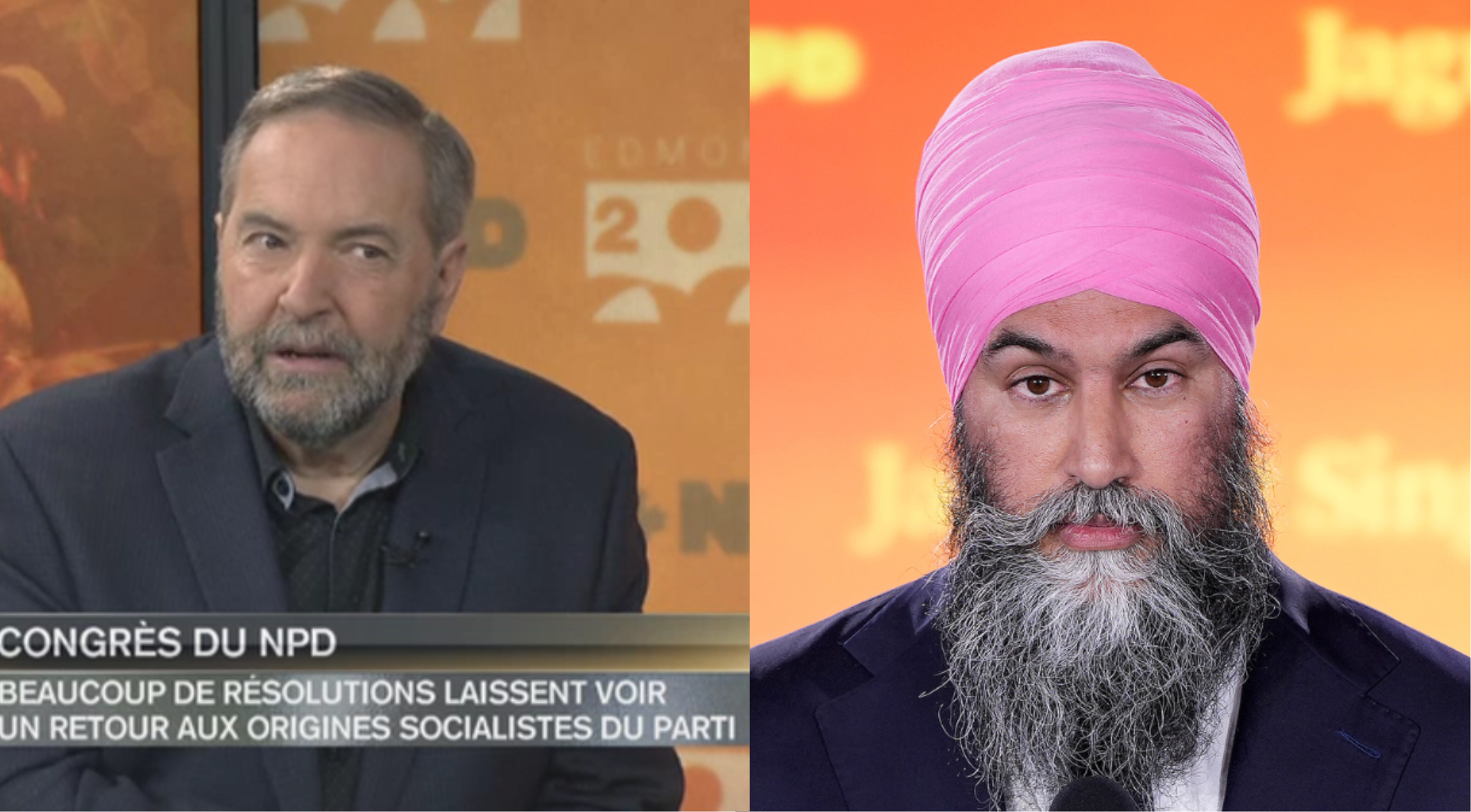
Side-by-side of Thomas Mulcair at the 2016 Edmonton NDP convention, where he was voted out as NDP leader, alongside Jagmeet Singh at Burnaby Central in April 2025, where he resigned after losing his seat.
The NDP leadership race comes on the heels of one of the party's most difficult elections in its history. In 2025, the New Democrats suffered their worst losses since their founding, reduced to a diminished caucus after many voters felt former leader Jagmeet Singh had compromised too much in his support for the Liberal government. For long-time supporters of the NDP, it was a continuation of a drift that began under Thomas Mulcair: moving away from the activist, grassroots left in search of centrist credibility and broad appeal.
That disappointment has left many New Democrats calling for a sharp break with the past. Engler's candidacy speaks directly to that mood, presenting himself as the figure who can steer the party away from what he calls “half-measures and concessions” and back toward an unapologetically socialist vision.
But the gamble is enormous. If elected leader, Engler would take the NDP in a direction unseen in its modern history, one that could either galvanize a new generation of activists disillusioned with mainstream politics, or alienate moderate voters and leave the party even more marginalized.
For Engler, however, the choice is clear. As his platform declares: “More democracy, not less, is key to a prosperous future. We fully reject the politics of centrism—our mandate is to build socialism.” Whether that vision resonates beyond his core supporters will be the central question of his leadership campaign.


